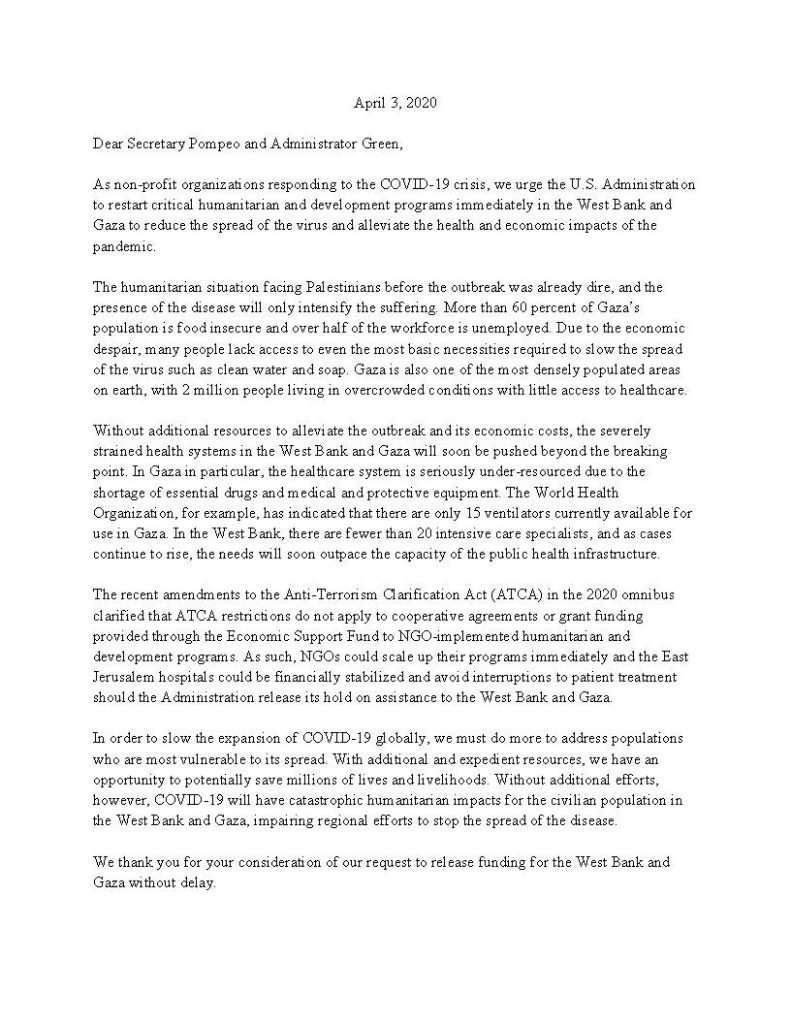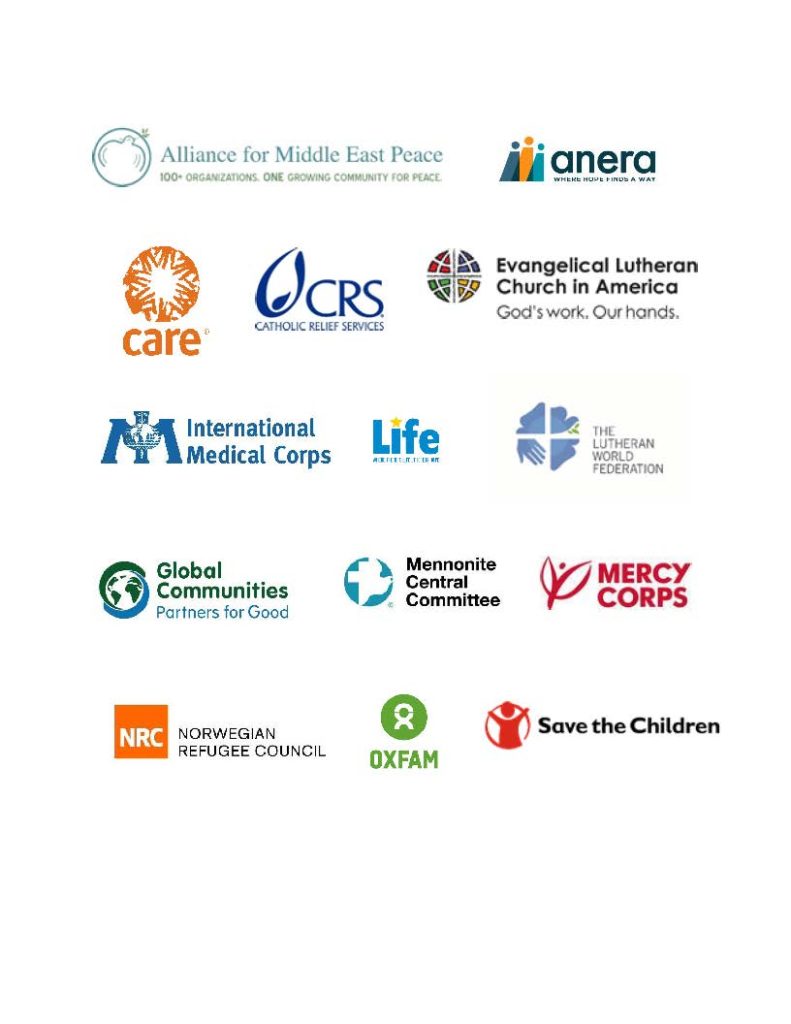A letter to the U.S. Administration from humanitarian organizations
Posted in: News
On Friday, April 3, Anera joined 13 other humanitarian organizations in urging the State Department and USAID to resume funding for humanitarian and development programs in the West Bank and Gaza to help respond to the COVID-19 pandemic. The other signatory organizations are the Alliance for Middle East Peace (ALLMEP), CARE, Catholic Relief Services (CRS), the Evangelical Lutheran Church in America, the International Medical Corps, Life, The Lutheran World Federation, Global Communities, the Mennonite Central Committee, Mercy Corps, the Norwegian Refugee Council (NRC), Oxfam, and Save the Children.
April 3, 2020
Dear Secretary Pompeo and Administrator Green,
As non-profit organizations responding to the COVID-19 crisis, we urge the U.S. Administration to restart critical humanitarian and development programs immediately in the West Bank and Gaza to reduce the spread of the virus and alleviate the health and economic impacts of the pandemic.
The humanitarian situation facing Palestinians before the outbreak was already dire, and the presence of the disease will only intensify the suffering. More than 60 percent of Gaza’s population is food insecure and over half of the workforce is unemployed. Due to the economic despair, many people lack access to even the most basic necessities required to slow the spread of the virus such as clean water and soap. Gaza is also one of the most densely populated areas on earth, with 2 million people living in overcrowded conditions with little access to healthcare.
Without additional resources to alleviate the outbreak and its economic costs, the severely strained health systems in the West Bank and Gaza will soon be pushed beyond the breaking point. In Gaza in particular, the healthcare system is seriously under-resourced due to the shortage of essential drugs and medical and protective equipment. The World Health Organization, for example, has indicated that there are only 15 ventilators currently available for use in Gaza. In the West Bank, there are fewer than 20 intensive care specialists, and as cases continue to rise, the needs will soon outpace the capacity of the public health infrastructure.
The recent amendments to the Anti-Terrorism Clarification Act (ATCA) in the 2020 omnibus clarified that ATCA restrictions do not apply to cooperative agreements or grant funding provided through the Economic Support Fund to NGO-implemented humanitarian and development programs. As such, NGOs could scale up their programs immediately and the East Jerusalem hospitals could be financially stabilized and avoid interruptions to patient treatment should the Administration release its hold on assistance to the West Bank and Gaza.
In order to slow the expansion of COVID-19 globally, we must do more to address populations who are most vulnerable to its spread. With additional and expedient resources, we have an opportunity to potentially save millions of lives and livelihoods. Without additional efforts, however, COVID-19 will have catastrophic humanitarian impacts for the civilian population in the West Bank and Gaza, impairing regional efforts to stop the spread of the disease.
We thank you for your consideration of our request to release funding for the West Bank and Gaza without delay.


